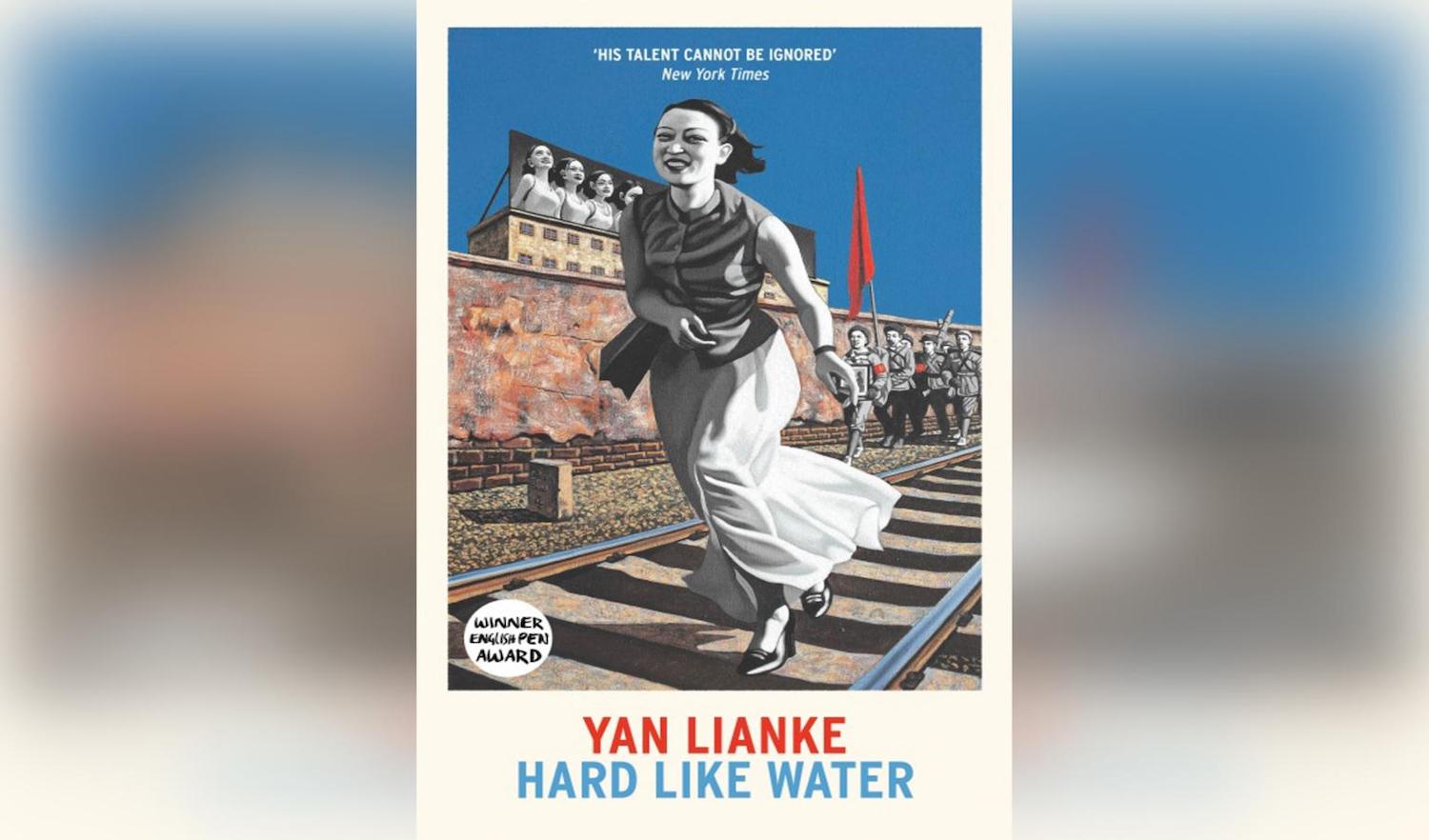ALEC FARMER WRITES — What are the similarities between a revolution and love? In Yan Lianke’s Hard Like Water (2021), Gao Aijun sees these two disparate concepts as one and the same. Aijun is, on the one hand, deeply committed to the Chinese Cultural Revolution and the words of Mao Zedong. However, Aijun is also committed to his romantic affair with Xia Hongmei, another revolutionary. In his eyes, a revolution and an affair come from the same place of passion within one’s heart. Yet, these two ideas are challenging to navigate. A revolution tears down an old system to build a new one, and an affair strips away an existing relationship to allow another to blossom.
Yan Lianke has spent his career writing Chinese political satires such as The Four Books (2016) and Lenin’s Kisses (2013). Lianke’s career is controversial in China, resulting in several of his books being banned. After reading Hard Like Water, it is no wonder why his works are so contentious. Hard Like Water follows Gao Aijun, a soldier who has returned to the small village of Chenggang and intends to spread the Cultural Revolution to its rural population. Aijun recites revolutionary ideas with Xia Hongmei, all while the two have an illicit affair. These two spend their time discussing Communist manifestos and organizing rallies. Yan Lianke makes the Cultural Revolution present in every aspect of Aijun’s life.
Aijun takes constant asides to explain how he is destined to become a Chinese Communist Party member of significant influence. There are physical expressions to this idea, such as Aijun’s depictions of “the revolutionary blood inside of me” or more subtle ones like admiring the red under his fingernail. Yan Lianke uses red as a motif for the Chinese Communist Party and the affair between Aijun and Hongmei. Red – the color of both passion and communism. Passion, while an avenue of creativity, is also a path toward destruction.
At a readthrough of its summary, one may approach this novel and its characters in an entirely serious manner. However, one of the most surprising and welcomed aspects of this book is its sense of humor. Yan Lianke utilizes his satirical voice to explore the twisted ways in which one can justify any ends. Aijun constantly praises his abilities, “I truly did have a very rare oratorical skill and was a speaker of eternal truths.” This self-inflated view leads Aijun into ridiculous situations. One chapter sees Aijun stopping every bus coming into Chenggang just to see if Hongmei is on one of them.

While many of the novel’s depictions are funny due to their over-the-top nature, they also illuminate the dangers of following an ideology with no room for revisions. Aijun constantly attacks those who seek to modify the beliefs of the Cultural Revolution. While Aijun does not alter these beliefs, he utilizes the words of the Communist Party to justify his actions. Aijun does whatever it takes to fulfill his “Revolutionary” passions with both the Party and Hongmei.
The book’s many references to the Cultural Revolution may make the novel seem intimidating for those unfamiliar with Chinese history. However, Yan Lianke’s satirical voice allows this work to be widely accessible. Satire is a powerful tool to create political commentary. Aijun and his passions could have been written in an entirely serious manner. However, the novel’s humor begs the reader to question why they are laughing. This introspection allows the reader to recognize the ridiculousness of Aijun’s thoughts. This power of satire exists regardless of one’s geographic or temporal space.
Ideological fanaticism dictates the life of Aijun. Lianke designed Aijun as a character who follows the words of Mao Zedong as if they had come from a prophet. Early in the novel, Aijun states, “I couldn’t let them idolize me the way Red Guards idolized Chairman Mao,” an appeal to have Mao Zedong idolized as an almost holy figure. Such an idea is paradoxical when you remember that communism requires pure atheism from its followers. Even though Aijun criticizes those who practice religion, he reveres Mao Zedong as a saintly figure. In this way, no matter how closely one follows the words of an ideology, they can always be darkly twisted. Through this idea, Aijun justifies his affair with Hongmei and the many horrific actions they commit together. As the novel states, “Only revolutionary love could bring about revolutionary strength,” Aijun believes that his affair is what gives life to his communist beliefs.
While Aijun’s love for the Revolution breeds true passion, this same passion enables him to commit horrific acts that he believes are justified. Yan Lianke’s satire illuminates the delusions of Aijun’s beliefs and reveals both the beauty and danger in how one can use passion to justify any means. A message which rings true for China’s Cultural Revolution that can also be related to over half a century later.

New AMI book reviewer, Alec Farmer, recently graduated from LMU with a degree in Film and TV Production and a minor in Asian and Pacific Studies. He has studied contemporary Asian literature and cinema.


One Reply to “BOOK REVIEW: HARD LIKE WATER (2021) – THE CONSEQUENCES OF LOVE AND REVOLUTION”